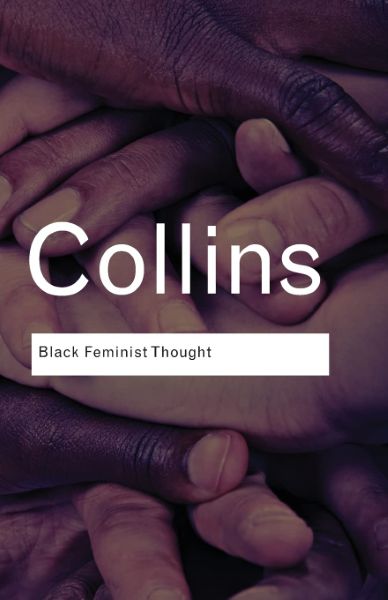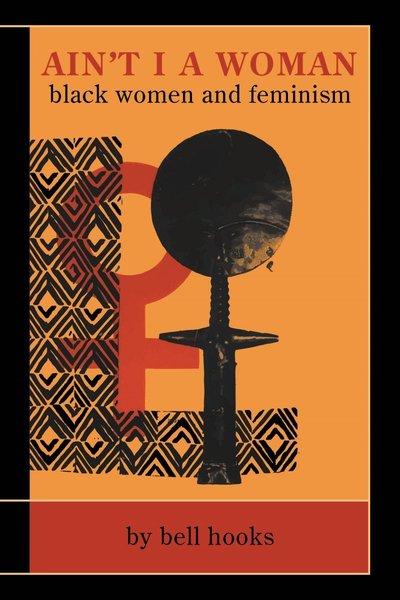Black Feminist Thought: Knowledge, Consciousness, and the Politics of Empowerment
This groundbreaking work systematically articulates Black feminist epistemology, introducing key concepts like the 'matrix of domination' and 'controlling images.' Collins demonstrates how Black women develop unique standpoint epistemology, resisting multiple oppressions through self-definition and self-valuation, providing a comprehensive theoretical framework for intersectionality theory and Black women's knowledge traditions.

📝 Book Review
In 1990, Patricia Hill Collins published “Black Feminist Thought: Knowledge, Consciousness, and the Politics of Empowerment,” a work that not only systematized Black feminist theory but provided a revolutionary framework for understanding the relationships between knowledge, power, and resistance. As a sociologist and Black feminist theorist, Collins synthesized the wisdom of generations of Black women thinkers, creating new conceptual tools for understanding oppression and liberation. This book marked the arrival of the era of intersectionality within women’s studies, profoundly influencing how we understand identity, knowledge, and social justice.
The Historical Moment of Theoretical Innovation
Collins wrote this book against the backdrop of the late 1980s maturation of Black feminist theory. After years of grassroots organizing and scholarly work, Black feminists had accumulated rich theoretical insights, but these insights were often scattered across different disciplines and venues. Collins’s work sought to synthesize this dispersed wisdom into a coherent theoretical framework.
The urgency of this project came from multiple directions. In academia, Black women’s knowledge production continued to be marginalized, their theoretical contributions often ignored or appropriated. Politically, the rise of neoconservatism threatened the gains of both civil rights and feminist movements. Culturally, harmful stereotypes about Black women continued to dominate mainstream discourse.
Collins recognized that what was needed was not just critique of these problems but affirmation of the knowledge traditions Black women had created. Her work sought to make this tradition visible, intelligible, and available for contemporary struggles.
The Revolution of Standpoint Epistemology
Central to Collins’s theoretical framework is her articulation of Black feminist standpoint epistemology. She argues that Black women, due to their unique position at the intersection of multiple systems of oppression, develop particular ways of seeing and understanding the world. This is not about claiming inherent superiority but recognizing the critical insights that emerge from navigating multiple oppressions.
Black women’s “outsider-within” status—being part of society yet simultaneously marginalized by it—provides a unique vantage point from which to critique power structures. As outsiders, they can see what dominant groups take for granted; as insiders, they have intimate knowledge of how these structures operate.
This standpoint epistemology is characterized by: lived experience as a criterion of meaning, valuing concrete, lived experience over abstract theorization; the use of dialogue, assessing knowledge claims through dialogue and narrative rather than isolated pronouncements; an ethic of caring, emphasizing personal expressiveness, emotions, and empathy in knowledge production; and an ethic of personal accountability, where the validity of knowledge claims depends partly on the character and experiences of the claimant.
The Power of Controlling Images
Collins’s analysis of “controlling images” is one of her most influential contributions. These are not merely stereotypes but ideological constructions with material consequences. They function as political weapons maintaining Black women’s subordination.
Collins identifies several key controlling images:
The Mammy: The asexual, nurturing caregiver loyal to white families. This image masks the exploitation of Black women’s domestic labor, naturalizes their care for white children while denying their own maternal needs.
The Matriarch: The “strong” Black woman who supposedly emasculates Black men. This image deflects attention from systemic racism, blames Black women for Black community problems, and justifies punitive social policies.
The Welfare Mother/Queen: Portrayed as lazy, irresponsible, and overly fertile. This image justifies cutting social benefits, obscures structural poverty, and reinforces racist assumptions about Black women’s sexuality.
The Jezebel/Hoochie: The hypersexual Black woman. This image has historically been used to justify sexual violence, deny Black women’s bodily autonomy, and exclude them from respectable femininity.
Collins demonstrates how these images interact, creating an ideological prison that constrains Black women’s self-definition and social opportunities.
The Matrix of Domination
The “matrix of domination” is one of Collins’s most significant theoretical innovations. This concept moves beyond simple intersectionality to show how different forms of oppression operate as an interlocking system. The matrix metaphor captures the multidimensionality and interconnectedness of power relations.
The matrix of domination operates in four interrelated domains:
The Structural Domain: Institutions that organize oppression—laws, political systems, economic arrangements—that systematically disadvantage certain groups. This includes labor market segregation, housing discrimination, unequal educational resources, and bias in the criminal justice system.
The Disciplinary Domain: Bureaucracies and surveillance mechanisms that manage oppression. This includes welfare agencies, medical systems, educational institutions, and other organizations that monitor and control marginalized populations.
The Hegemonic Domain: Ideology, culture, and consciousness that legitimize oppression. This includes media representations, academic knowledge production, religious teachings, and popular culture that shape how we understand social reality.
The Interpersonal Domain: The everyday interactions and relationships where oppression is enacted. This includes microaggressions, discriminatory behaviors, everyday racism and sexism, and power dynamics in personal relationships.
This framework shows how power operates simultaneously at multiple levels, with each domain reinforcing the others.
Black Women’s Knowledge Traditions
A key contribution of Collins is her documentation and theorization of Black women’s knowledge traditions. She demonstrates how Black women have created a rich intellectual heritage despite exclusion from mainstream academia.
This knowledge tradition includes multiple forms:
Blues and Other Musical Forms: Artists like Billie Holiday, Bessie Smith, and Aretha Franklin expressed complex theoretical insights through music, articulating themes of love, pain, resistance, and survival.
Literature and Poetry: Writers like Zora Neale Hurston, Toni Morrison, Alice Walker, and Audre Lorde created literary works that explore Black women’s experiences and theorize resistance.
Everyday Knowledge: The wisdom passed through churches, beauty shops, kitchen table conversations, survival strategies and forms of resistance passed down through generations.
Activist Traditions: From Sojourner Truth to Ida B. Wells, from Fannie Lou Hamer to Angela Davis, Black women activists have created practical theory.
Collins argues that these are not “merely” cultural expressions but sophisticated forms of theorizing that deserve recognition as knowledge.
Self-Definition and Self-Valuation
A crucial element of Collins’s framework is her emphasis on self-definition and self-valuation as forms of resistance. In the face of controlling images that attempt to define and constrain them, Black women have created their own definitions and standards of evaluation.
Self-definition involves rejecting externally imposed definitions and naming and defining oneself. This is not merely individual choice but a political act that challenges the power of dominant groups to define reality.
Self-valuation involves creating one’s own standards of worth and value. Rather than measuring themselves against dominant standards (which often devalue Black women), Black women create alternative frameworks that recognize their strengths, beauty, and contributions.
These processes are essential for both psychological survival and political resistance. They enable Black women to maintain a sense of self in hostile environments and lay the groundwork for collective action.
Power, Activism, and Social Change
Collins’s work is not merely descriptive—it is deeply concerned with social transformation. She demonstrates how knowledge can be a form of power and how oppressed groups can use knowledge for resistance.
Her conception of empowerment goes beyond individual achievement to encompass collective action and structural change. Empowerment requires: developing critical consciousness through understanding how systems of oppression operate; building individual and collective identity through self-definition and self-valuation; building coalitions with others while recognizing differences; and engaging in collective action to change oppressive structures.
Collins emphasizes that genuine social change requires intervention in all four domains of the matrix. Changing individual attitudes alone or reforming institutions alone is insufficient—coordinated action is needed at structural, disciplinary, hegemonic, and interpersonal levels.
Methodological Innovation
“Black Feminist Thought” is methodologically innovative. Collins employs the epistemological principles she advocates, drawing on diverse sources of knowledge: academic scholarship, literary and artistic works, popular culture, interviews and personal narratives, and historical documents.
This methodological pluralism is not eclecticism but a deliberate strategy to capture the richness of Black women’s intellectual traditions. It challenges academic conventions about what counts as legitimate sources of knowledge, demonstrating how rigorous scholarship can engage with multiple ways of knowing.
Global Connections and Transnational Solidarity
While primarily focused on U.S. Black women, Collins’s work has global implications. She shows how the oppression of U.S. Black women connects to global capitalism, imperialism, and colonialism.
The matrix of domination concept has been applied to understand power relations worldwide. Scholars and activists in different countries have adapted this framework to analyze local configurations of oppression while maintaining its core insight about how power operates through multiple intersecting systems.
Collins’s work also emphasizes the importance of transnational solidarity, recognizing shared struggles among women of color globally while respecting the specificity of their experiences.
Critiques and Developments
“Black Feminist Thought” has generated important critiques and debates. Some critics question whether there is a single “Black women’s standpoint,” pointing to diversity among Black women. Others worry that standpoint epistemology might lead to essentialism or relativism.
In response, Collins and other scholars have developed more nuanced understandings of standpoint theory, acknowledging diversity within groups while maintaining the core insight that structural position shapes knowledge.
Debates about who can produce Black feminist knowledge have also been significant. While Collins emphasizes Black women’s unique insights, she also recognizes contributions from allies and the importance of coalition politics.
Contemporary Relevance and Legacy
More than thirty years after publication, “Black Feminist Thought” remains profoundly relevant. In an era of #BlackLivesMatter, #SayHerName, and growing recognition of intersectionality, Collins’s framework provides essential tools for understanding contemporary struggles.
The book’s legacy can be seen in: intersectionality becoming a mainstream concept (building partly on Collins’s work); growing recognition of diverse knowledge sources in academia; understanding in social movements of how multiple oppressions interact; and the continuing work of Black women scholars and activists.
Concepts like the matrix of domination and controlling images have become standard tools for analyzing power and resistance. They continue to help new generations understand and challenge systems of oppression.
Conclusion: A Vision of Liberation
Patricia Hill Collins’s “Black Feminist Thought” is not merely academic analysis—it is a vision of liberation. By demonstrating how Black women have created knowledge and resistance in the most challenging circumstances, it offers hope and direction for all who seek justice.
The book’s enduring contribution lies in its holistic approach—it shows how knowledge, power, and resistance interconnect. It insists that theory must be rooted in lived experience, that scholarship must serve social justice, and that genuine liberation requires transforming all domains where oppression operates.
“Black Feminist Thought” ultimately affirms the capacity of marginalized people to produce knowledge. It demonstrates how those excluded by the matrix of domination can generate insights that understand and transform that matrix. In this recognition lies the possibility not just of Black women’s liberation but of everyone’s liberation. As Collins shows, Black women’s freedom is inextricably linked to the freedom of all—when the most marginalized are liberated, everyone benefits.
Book Info
Related Topics
🛒 Get This Book
 Buy on Amazon
Buy on Amazon Related Books
Book Discussion
Share your thoughts and opinions on this book and exchange insights with other readers
Join the Discussion
Share your thoughts and opinions on this book and exchange insights with other readers
Loading comments...


